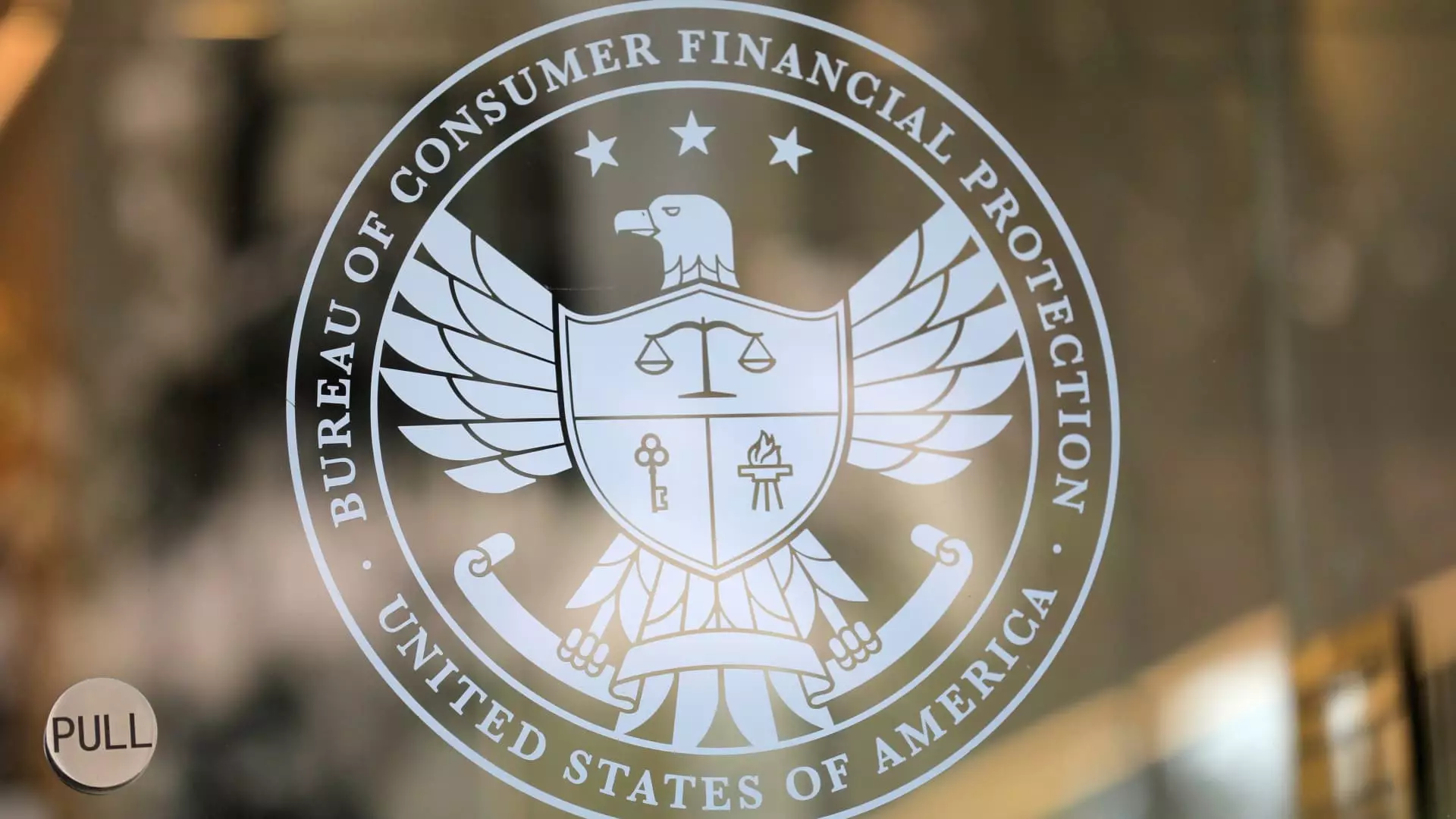The Consumer Financial Protection Bureau (CFPB) serves a critical role in the financial ecosystem of the United States, acting as a bulwark against predatory practices that harm everyday consumers. However, the Trump administration’s early efforts to dismantle this agency signify a troubling trend where the protections meant to safeguard consumers are being put at risk. These efforts not only threaten the CFPB’s existence but sow confusion and apprehension in the financial sector, raising serious concerns about the protections and regulations we often take for granted.
A federal judge recently scheduled a hearing to examine attempts to cripple the CFPB, illuminating the deep-seated battles within the realm of consumer economics. The attempts to cut back the agency from approximately 1,700 employees to a mere 200 highlights a stark undercurrent—an ambition to realign consumer protections with a new, more mercurial political philosophy that prioritizes laissez-faire as opposed to oversight.
Legal Battles Ignite Uncertainty
The judicial decisions surrounding the CFPB may very well define its future. On one side, U.S. District Judge Amy Berman Jackson’s ruling which blocked the administration from executing mass firings among the CFPB employees serves as a momentary shield for the agency’s operational integrity. Nevertheless, the looming question persists: how can an agency function effectively on an unclear mandate, muddled by ongoing litigation and adverse political agitations?
Industry leaders have voiced concerns that such uncertainty is detrimental to innovation within financial services. Phil Goldfeder, CEO of the American Fintech Council, underscores how a murky regulatory framework leaves innovators floundering, ultimately affecting consumers directly. When the regulatory environment becomes inconsistent, it is the innocent bystander—consumer protection—that bears the brunt of regulatory irresponsibility.
The Agency’s Essential Role
Initially birthed from the ashes of the financial crisis of 2008, the CFPB was established to centralize consumer protection and enforce laws against deceptive financial practices. Its role in supervising banking practices and enforcing regulations around mortgages and credit would have gone a long way toward preventing future financial turmoil. Now, however, with the agency under siege, tasks once fulfilled with diligence are at risk of stalling or, even worse, being entirely neglected.
Historically, the CFPB has taken steps to cap bank overdraft fees and regulate payment applications, initiatives designed to bring financial integrity back to the market. The mere idea that these efforts could be dismantled or weakened is a frightening reality for millions of Americans who rely on these protections.
The Risks of Regulatory Rollbacks
In real terms, the dismantling of the CFPB would deliver crippling blows not just to consumer protections, but also to the broader idea of accountability in financial services. Legal actions that were previously underway, including significant lawsuits against entities like National Collegiate Student Loan Trusts for unlawful debt collection practices, now hang in the balance, raising doubts about their future. As Ian Katz at Capital Alpha Partners cautions, the administration’s proposed cuts are not merely cosmetic; they signify a drastic pivot in oversight that could reshape consumer financial protections for years to come.
One particularly alarming aspect of these changes is the lack of coherent oversight regarding nonbank financial services. With the potential overturning of rules that require nonbank firms to adhere to the same rigorous standards as banks—regulations that ensure transparency and fairness—an uneven playing field emerges. This could enable predatory practices by certain payment applications that would otherwise be regulated, resulting in a disjointed system where some services remain compliant while others avoid accountability altogether.
Consumer Complaints and the Risk of Apathy
Even more troubling is how these challenges affect consumers directly. The CFPB, by design, is supposed to maintain an active database of consumer complaints, receiving approximately 25,000 submissions each week. However, without the machinery to enforce responses or investigations into these complaints, consumers find themselves in an impotent position, wondering whether the agency meant to protect them even has the capacity to do so anymore. Adam Rust of the Consumer Federation of America aptly points out that without meaningful enforcement mechanisms in place, consumer complaints merely languish in a queue, undermining trust in the system itself.
In the face of these uncertainties, a broad coalition of state attorneys general is rallying against the diminishing of the CFPB’s power, a rare moment of synchronicity across what is frequently a highly fractured political landscape. Such unity suggests an underlying consensus—that consumer protection should transcend political affiliations.
As waves of challenge rise against the CFPB, it’s crucial to remember that the agency is more than just a regulatory body; it is a vital function of democracy, standing as the first line of defense for consumers in a world where financial institutions wield immense power. Now more than ever, it is imperative for American citizens to advocate for their consumer rights and demand robust regulatory frameworks that protect them from exploitation. The risks of complacency are simply far too great.

